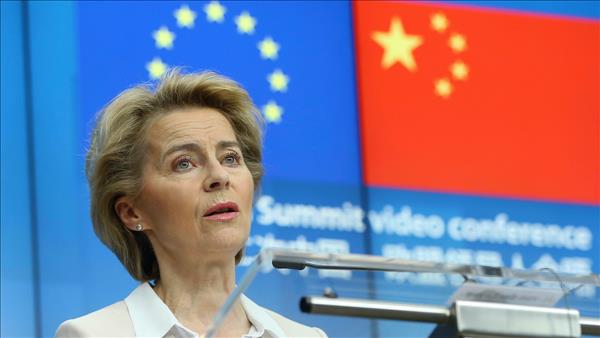(MENAFN- Asia Times) The long list of European leaders visiting Beijing since German Chancellor Olaf Scholz jumped ahead of the race last November has been described by some Chinese media as pilgrims heading toward the fastest-growing major economy in the world.
One wonders whether this is enough of a reason for European leaders to have shifted away from a rather hostile stance during their last High Economic Dialogue with China's leader, Xi Jinping, a rather abrupt online meeting that took place in April 2022, a few weeks after Russia's invasion of Ukraine.
That dialogue, dubbed“dialogue of the deaf” by Josep Borrell, the European Union's high representative of the Union for Foreign Affairs and Security Policy, ended quite abruptly as European leaders felt that China was not willing to cooperate to exert pressure on Russia to stop its aggression against Ukraine.
From China's side, the EU was felt to be too much of a follower of US containment efforts against China. To make things worse, in early 2021, the EU and China imposed targeted sanctions against Xinjiang-related officials and members of the European Parliament (MEPs) and European think-tanks, respectively.
The question is what has changed in the last few months to explain European leaders' keen interest in returning to a more constructive dialogue with China.
Chancellor Scholz' visit was probably the most criticized, not only because it was the first after the“dialogue of the deaf” summit but also because of the rather commercial objective of his visit, with a large delegation of German firms accompanying the chancellor instead of French President Emmanuel Macron, who apparently had been interested in a joint visit.
Since then several European leaders, as well as the president of the European Council, Charles Michel, have gone to Beijing with no clear gain from such visits, certainly not in terms of China's stance on the war in Ukraine or on major advances in terms of economic cooperation.
But the hopes seem to be higher for Macron's and European Commission President Ursula von der Leyen's current visit to Beijing given their joint weight in European affairs.
Interestingly enough, though, their agendas might not have fully aligned prior to the meeting, judging from von der Leyen's rather hawkish speech last week, which focused on de-risking from China, compared with Macron's emphasis on a“mirror risk,” namely that of cutting off China, with an indirect allusion to the US technological containment of China.
In the same vein, while both von der Leyen and Macron are hoping to influence Xi's thought on the war in Ukraine, not much is known as to what exactly the two leaders will be asking China to do. It is very likely that both leaders will need to convey to Xi the EU's rather negative stance on his peace proposal, which does not bode well for any material outcome on this important issue for Europe.
Without any good news on Ukraine, the question then is what can make this official visit successful from a European perspective.
A second important topic of discussion from the European perspective is the resilience of green-energy-related supply chains in the contexts of growing rumors of potential export licenses being introduced by China, which happens to export more than 90% of the electric batteries that the EU needs, some 90% of the solar panels and 60% of wind batteries.
While the European Commission has been frantically legislating to mitigate the risk of excessive dependence on China for its green energy transition, it seems clear that the EU needs China to continue to export batteries, solar panels and wind turbines while Europe tries to diversify away from China.
At the same time, it seems unlikely that China will not take any action in response to the EU, and especially the Netherlands, following the US with its exports controls on the semiconductor supply chain.
In fact, China's most obvious response would be to introduce its own export controls to limit the stable flow of critical materials for Europe's green transition. To Europe's dismay, China has already started setting up such export licenses.
A second, more amenable, request from China's side will be for the European Union to ratify the stalled Comprehensive Agreement on Investment (CAI) that the EU and China reached at the end of 2020 and whose ratification by the European Parliament was frozen after China's sanctions against MEPs.
The fact that Spanish Prime Minister Pedro Sánchez, soon to become the rotating president of the EU for the second half of 2023, has just visited Beijing too seems to indicate that the CAI's ratification will be high on the EU's agenda at China's request.
All in all, after so many pilgrimages to China by European leaders, the question remains as to what Europe has to gain. It seems Macron and von der Leyen will also leave with no good news on Ukraine and no assurance that de-risking – or the lack thereof – can be carried out without major concerns for energy transition.
Alicia García Herrero is senior research fellow at Bruegel and chief economist for Asia-Pacific at Natixis.
Like this:Like Loading...




















Comments
No comment